How to Work or Volunteer for Accommodation:
Travel for Cheap
- June 11, 2025
- One Comment
Working in exchange for accommodation, sometimes also referred to as volunteering, is a fantastic way to travel for almost free – I have done exactly that in 5 countries. You get a free bed as well as often meals and activities included in return for a few hours of work a day. Here is exactly how you can find a work for accommodation placement as well as what to look out for and more!
When I first started travelling full-time a bit over 2 years a go, I had saved a little money for my travels. However, after spending 9 months in Canada, my funds were running a little low. I consequently looked into different ways to safe money while travelling and came across work for accommodation/volunteering.
I specifically started with Worldpackers, a website that helps you find these placements and also includes host reviews. It seemed like the safest and easiest way to live in another country for basically free in exchange for only a few hours of work a day. I have since done the exact same in 5 countries (6+ months in total) and saved SO much money. Some of these experiences were through websites like Worldpackers, others I found in different ways – all of which we will explore below.
Let’s see exactly how you can do the same:
Table of Contents
ToggleEverything You Need to Know About Working for Accommodation
Working in exchange for accommodation is such a great way to travel, for many reasons. First of all, you are saving a ton of money. Secondly, you are able to travel slower and hence get to know a country and its community so much better than if you only visited for a few days. It is also a much more sustainable way to travel, both for yourself to avoid travel burn out but also for our planet.
In addition, you learn new skills and often can even have a remote job while completing your volunteering – you only work in a hostel or similar setting for a few hours each day, the rest of the day is up to you. I also find that it is a great way to build your own community and make friends when solo travelling, with the other volunteers and staff members. Some of my closest friends are from these times.
Lastly, some placements allow you to take part in activities and hobbies that are usually very expensive at a much lower cost/free. This could be surfing , skiing, Yoga or anything else really. It’s hence a fantastic way to improve or practice your hobbies for cheap.
How to secure volunteering placements:
There are more ways than you may think to secure one of these work for accommodation gigs. Some of these are super simple, some it helps to have a little more experience.
1. Work for Accommodation Sites like Worldpackers
There are several websites that specialise in finding you a work exchange experience. They have a small yearly fee for membership and in return help you find placements. Usually there are reviews for different experiences which is helpful if you are worried about “scam” placements and it’s always great to hear from someone who has already been there. Here are some of the most popular sites:
- Worldpackers – This is the site I use to find a lot of my work for accommodation stays. I find it very comprehensive in terms of amount of volunteer opportunities, quality reviews and usually good communication with hosts. It is one of the biggest sites and there is a huge variety of different opportunities worldwide, however it is especially good for those looking for hostel stays. Costs $59 but there are any discount codes of $10 off or more.
- Workaway – Another big volunteering site, it is said to have even more hosts due to more types of placements, e.g. helping locals at home or Eco projects. Costs 59 € per year but you can also find some promo codes for this site.
- WWOOF – this site is specifically for working on organic farms. I think you have to be very careful when selecting the right farm as otherwise many have reported not so great experiences. It costs around $40 but varies slightly by country.
- HelpX – This is by far the most affordable site, 20€ for 2 years. It offers a variety of hosts and stays, however it’s also the site I have personally heard the least about from other travellers and it has some mixed reviews.
2. Messaging hostels directly
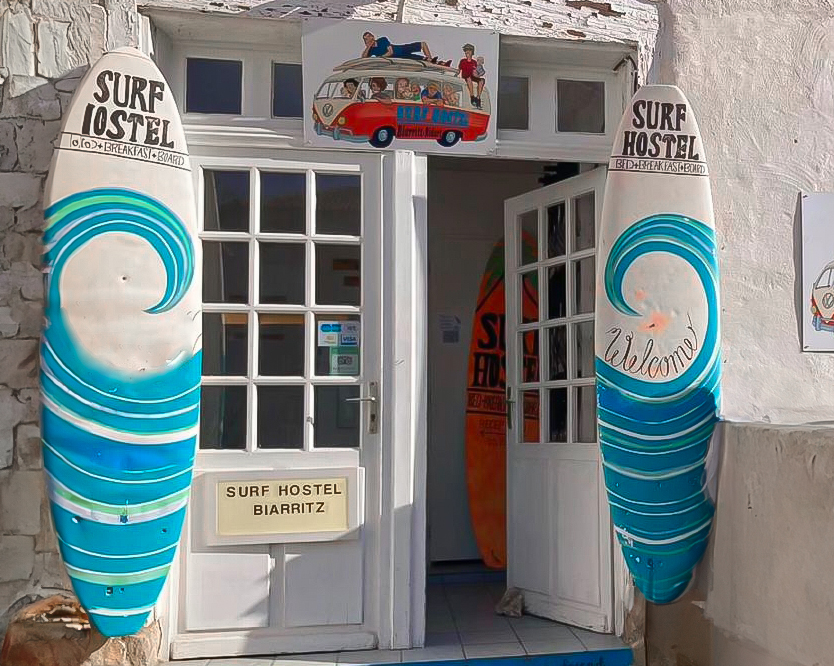
As I got more experience in the work for accommodation sector, I learned from other travellers that many just contact hostels or similar places like surf camps directly. Sometimes hostels even have a volunteering section on their website, otherwise Instagram and WhatsApp are usually great options.
The benefit of this method is that you can choose directly the locations and places that interest you. You also get to apply with a more personable approach and they may not get as many different applications. The downside is that you can’t see any reviews from previous volunteers so its harder to know what to expect.
That being said, I have found 2 of my experiences this way and both were fantastic. I’d recommend to check the overall reviews on Google and Booking.com for the hostel – if they are good, it’s usually a good sign that volunteering there will be fine too. Also check their Instagram to get the vibe of the place and make sure to discuss tasks etc. in detail when you start communicating with them.
Your initial message doesn’t need to be complicated. I would introduce myself, say my age and where I’m from, a little of my experience (if you haven’t worked in a similar role, use transferrable skills), a little about why you are contacting them and then say that you’d love to hear from them if they have any volunteer roles available.
3. Finding places through Facebook Groups
Facebook groups are a great resource when travelling in general. There are pages for basically any destination, any sport and any hobby. The same goes for pages that share work for accommodation roles.
One of my personal favourites is “Surf Jobs” – I have found several of my roles here. Hostels and surf camps post what they have available and you can then get in touch. It’s great because their posts will include the basics of the role and what you can expect in return, meaning you already have some information to know if this is the role for you. A note here is that you will likely need to be quick – the popular roles get tons of traction and many people messaging the hostel/surf camp so it pays off to be one of the first.
Other examples of relevant Facebook pages are Work for Accommodation in Australia, Seasonal Jobs, Volunteer Haven Europe and Work & Volunteering Worldwide. There are many more, so search for your ideal destination country or hobby.
4. Google Search
This may sound too simple but you can find volunteering roles through a simple Google too. As we have already discussed, some hostels do have volunteer sections on their website. So if you search a destination + “volunteer” or “work for accommodation”, you can find some gems too. These pages also tend to come with an email to contact or even an application form, which is great.
5. When already staying there or visiting a location
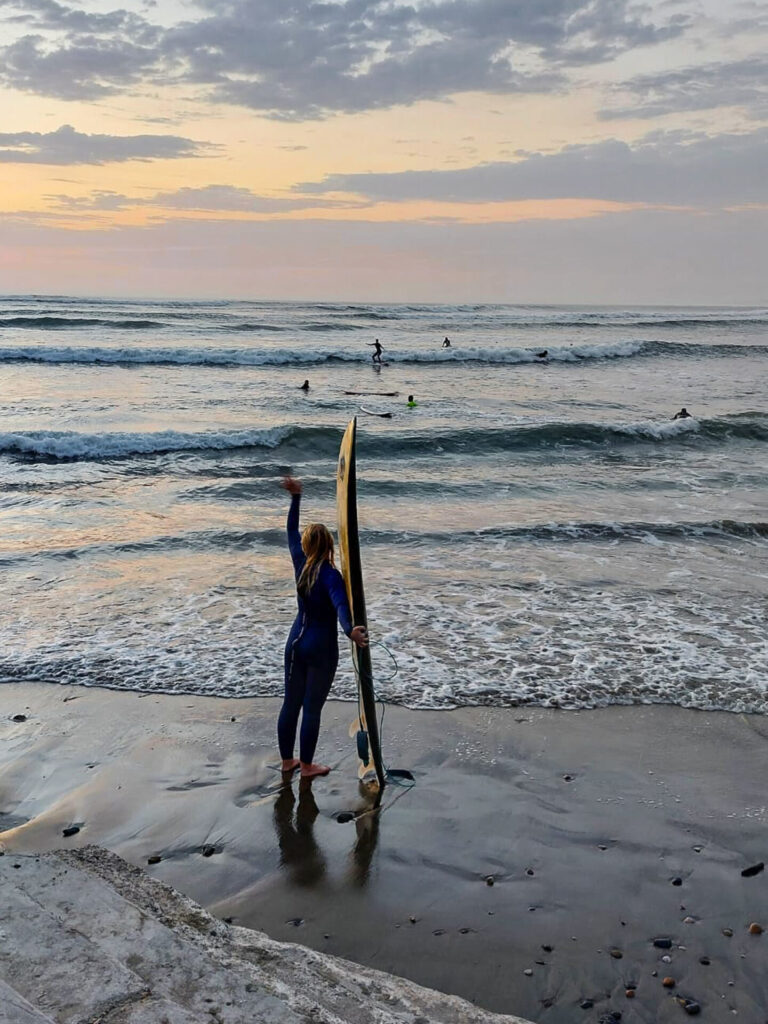
Sometimes hostels post volunteer roles on their notice board too. That means if you stay somewhere and really enjoy it, you can talk to the team there and extend your stay through volunteering. The great thing about this is that you already know the place and people and also know that you like it there. Even if they haven’t posted about searching for volunteers, it is always worth asking. Most hostels do accept work for accommodation.
Things to look out for when looking for volunteering placements:
You now know where to look for placements, but how do you know which one to apply to or accept? Here are the things I always look out for before agreeing to a placement, as well as how to spot some red flags:
Good reviews from other volunteers
The best way to know if a place is legit and nice to work at is if there are reviews from previous volunteers. You will find those on sites like Worldpackers. In these reviews, pay attention to any reference to the work they were asked to do and if this does align with what they advertised. Check for any negative reviews and see if that review is a deal breaker for you. Also check if the host has replied to any reviews – overly defensive replies to negative reviews are a red flag in my experience.
Good reviews of the place itself
If I don’t have reviews from other volunteers, I immediately go to Google, Booking and Hostelworld to check for the place there. This works especially well for hostels and surf camps. In my experience, if a hostel itself has great reviews from guests, the volunteer experience is also a good one. Lots of bad reviews tend to speak of bad management or a dirty environment and that is something you don’t want for your longer stay.
Good communication with host
DO NOT go to a placement if the host has been bad at communicating leading up to it. It just sets you up for failure. It’s important the host is open to discussing the role, your tasks as well as what your accommodation will look like PRIOR to your placement. Even better if you have this in writing, as it helps to have a track record of e.g. tasks when you feel you are being asked to do things you didn’t agree to.
Clear expectations and agreement
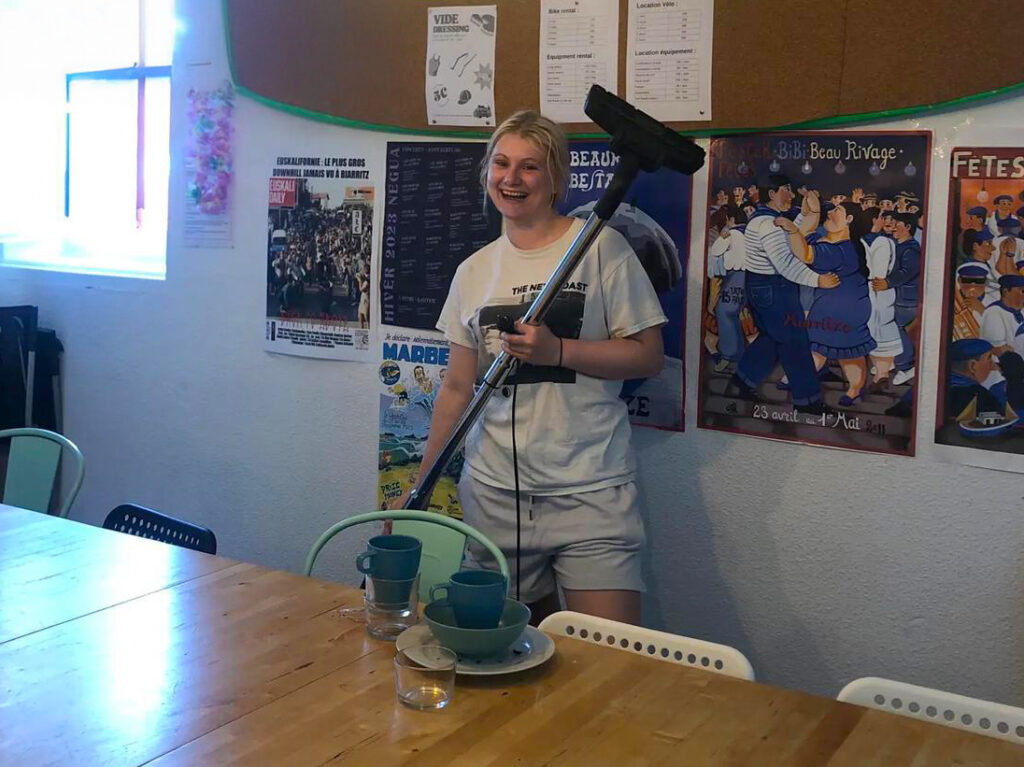
Leading on from the last point, discuss your role in detail with your host. Know what to expect, explain any things you are not comfortable doing and set some ground rules. We will discuss all the questions to ask your host in the next section. Know about your role and responsibilities before agreeing to a stay. If a host expects you to do something you are not comfortable with (e.g. cleaning toilets), don’t go there.
Is it a fair exchange?
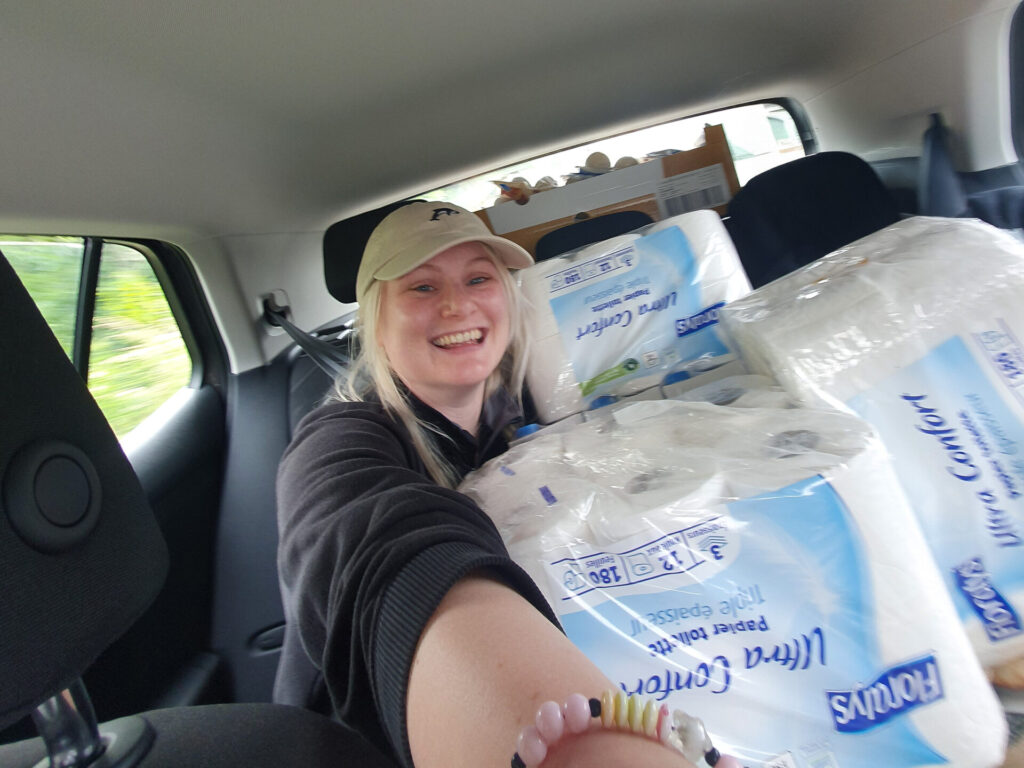
Unfortunately sometimes hosts see these work exchanges as free labour. You are supposed to get something in return – accommodation, food ect. Make sure your exchange is fair – that means the number of hours sort of correlates with the money you are saving. Usually 20-25 hours are fair in my experience. A bad exchange would e.g. be 30 hours of cleaning work in an affordable destination. You are being ripped off. Remember you’re not there to replace paid staff, just to help out.
Where is the stay?
You may want to go to a certain country, however can’t get the right visa for a work exchange there. Don’t risk it! Make sure the location is one you are allowed to volunteer and also is safe and well-connected. You need to be able to get away from the place fairly easily in case of emergency.
What questions should you ask before agreeing to a volunteer/ work for accommodation role?
When communicating with a potential host, they will ask you a lot of questions about yourself and your experience. Make sure you ask them the below questions in return to know if this is the right place for you and be prepared:
- What is the role? What exact tasks will this entail?
- What would a typical day look like?
- What are my work hours – daily and per week? Days off?
- Are there other volunteers or staff? If yes, what are their ages?
- What’s the sleeping situation? A dorm, private? Same sex or mixed?
- What is the minimum and maximum time for the total stay?
- How are rotas assigned? Is it a set schedule or flexible?
- Are meals included? Any activities?
- How can I get to the accommodation? How do I get around while there?
- Are there any house rules I should be aware of?
Would you mind if I talked to someone who’s stayed with you recently?
How to market yourself to potential hosts?
We now know how to find placements and what to look out for, but how do you make sure that YOU are attractive to potential hosts? How do you get them to look at your application?
Optimise your profile
If you are applying through a website, make sure your profile is as good as it can be. Pick a nice, personable photo (a smiling one is always great) and write a few sentences about yourself. They don’t have to be deep, just a little something about where you’re from and what you enjoy doing for example. Then list your experience in detail – if you don’t have any, choose anything that could showcase transferrable skills, e.g. sports clubs.
The first message
When writing your first message to a potential host, there are a few things you should include. My main tip though is to keep it concise – no one will read paragraph after paragraph about your life.
I would start with a short 1-2 sentences about yourself. Who are you, where are you from, what do you do? Then, explain that you are contacting about a work exchange experience (if responding to a certain post on Facebook, reference that post). Then add 2-3 sentences about your experience, especially related to the role. Finish off with saying why you are interested in this specific experience/hostel – you could talk about the activities they offer, or how friendly the team seems or how the role sounds just perfect to learn new skills. Lastly I would say thank you and that you’d love to discuss this further with them.
If relevant, attach your CV to this message and possibly references (though only if they ask for them). Keep your tone friendly and be honest. The right opportunity will find itself!
What you can expect in return:
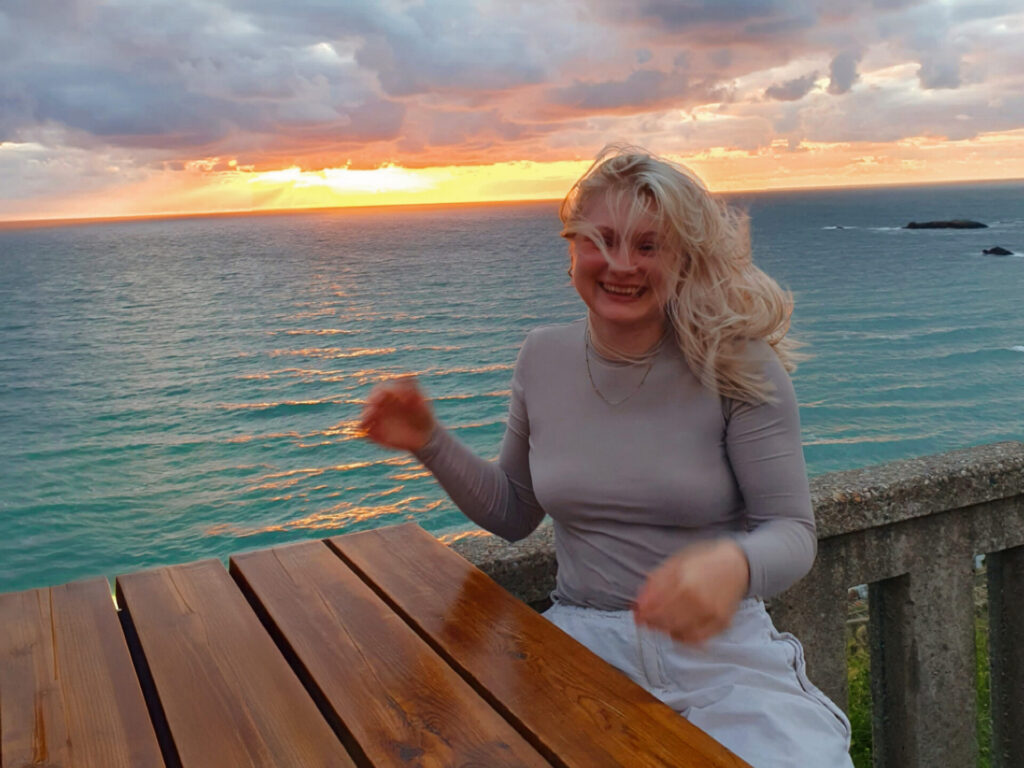
As we have already touched on, the point of a work exchange isn’t for you to be “free labour”. It is that a fair exchange is made between your time/skills and accommodation/food/activities.
Each volunteer role is different, but all should include free accommodation in a dorm or private room. Some roles include all or partial meals and some groceries. Hostels that offer other activities often let volunteers use them for free or at a discount, such as surf equipment in a surf hostel. The money you save on what you get in exchange for your work should correlate roughly with the hours worked – I usually use minimum wage to calculate this.
You can also expect other staff and volunteer to become your community. Ideally, you will go on trips together and enjoy the day-to-day, such as cooking together or doing hobbies. You also tend to get 1-2 free days are week, which are important to rest or for you to go travel and explore the region you are staying in.
Some placements will also teach you new skills and help train you in the work you are going to do. Others will help you with language exchange and be happy to communicate with you in the local language so you can learn. Make the most of these opportunities as they are such a great part of the experience.
I have had hosts that I got along with especially well who would invite me and the other volunteers to cook outs or for day trips. Many are excited to share their local culture with you, which is another great part of this way of travelling.
What to do if you are not enjoying your placement?
Sometimes, you can do everything right and the work exchange is still not what you expected. No matter how much research you do, you will never know 100% what will happen when you get there.
My first advice would be to give it a few days. I have arrived at work exchanges before where I was a little shocked by the staff dorms for example. At first I felt like leaving immediately, but I actually got used to it and it wasn’t as bad once I met the other volunteers. That doesn’t mean to settle in horrible conditions, but just to give yourself some time to digest all the new things that you will be experiencing at once. If after a few days it still feels unbearable, it’s time to leave.
Which brings me to my second point: Do not be too embarassed/shy/polite to leave if you feel unhappy, uncomfortable or even exploited. You are working for free – you don’t owe these people anything. If you can, talk to the host about your concerns but if you feel you can’t or worry for your safety, quietly pack your bags and get out of there. Let someone trusted know where you and where you’re headed.
I have personally been pretty lucky with my stays, but I have also heard plenty of negative stories. Trust your gut here and leave if anything feels off. Don’t worry about a bad review on e.g. Worldpackers – you can contact them and let them know about your concerns and why you left. They value safety a lot, so should take you seriously.
FAQ
What are the Visa rules regarding work for accommodation/ volunteering:
There isn’t a straightforward answer regarding the visa rules for work for accommodation or volunteering. Some countries do have regulations regarding if you need a work visa for volunteering, so make sure to double check this before agreeing to any volunteer arrangement. Places like Australia for example have super strict rules. Another example is if you have an EU passport, working for accommodation within Europe is not an issue. That’s how I have completed most of my stays. Worldpackers and similar sites all have disclaimers that they are not responsible for visas.
Is a Work Exchange paid?
No, most work for accommodation placements are not paid. I have seen a few where you could do extra work in e.g. the bar and be paid for that time. However, usually your payment is the free room and board. It’s more of a skill exchange than a full-on job.
Is a Work Exchange worth it?
100%, if you find the right one. Finding a fair work exchange in a place you really want to visit is like striking gold. It’s an incredible experience, you meet so many amazing people and you save money while seeing the world.
Hi, I'm Bell

I’m a solo traveller, writer and designer. I created my blog to share the many different ways to travel the world. Learn more about me here!
Grab my Ultimate FREE Packing Guide
Travel Off Script contains affiliate links to support the running of the blog. If you make a purchase through these links, I will earn a commission at no extra cost to you. Thank you.

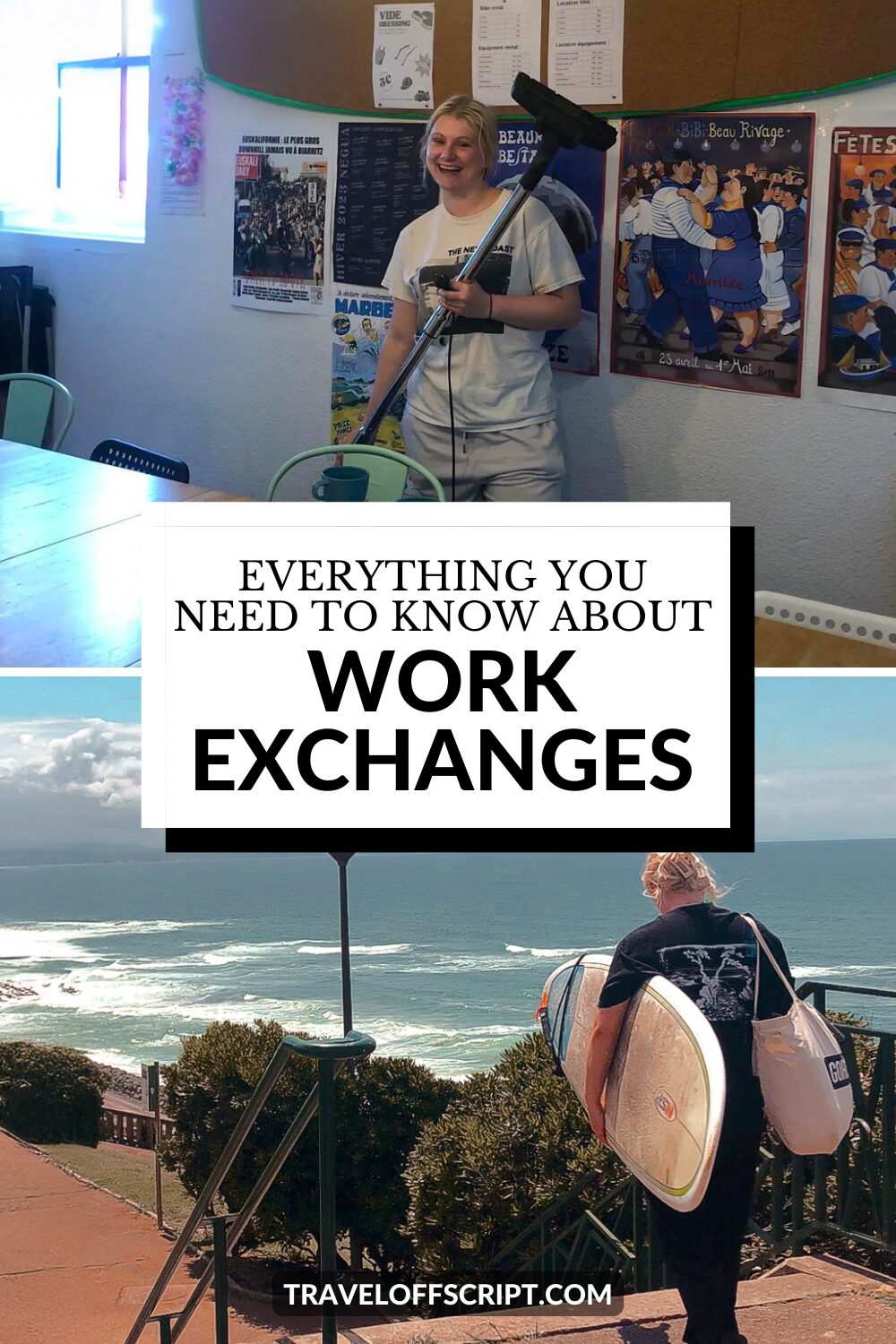
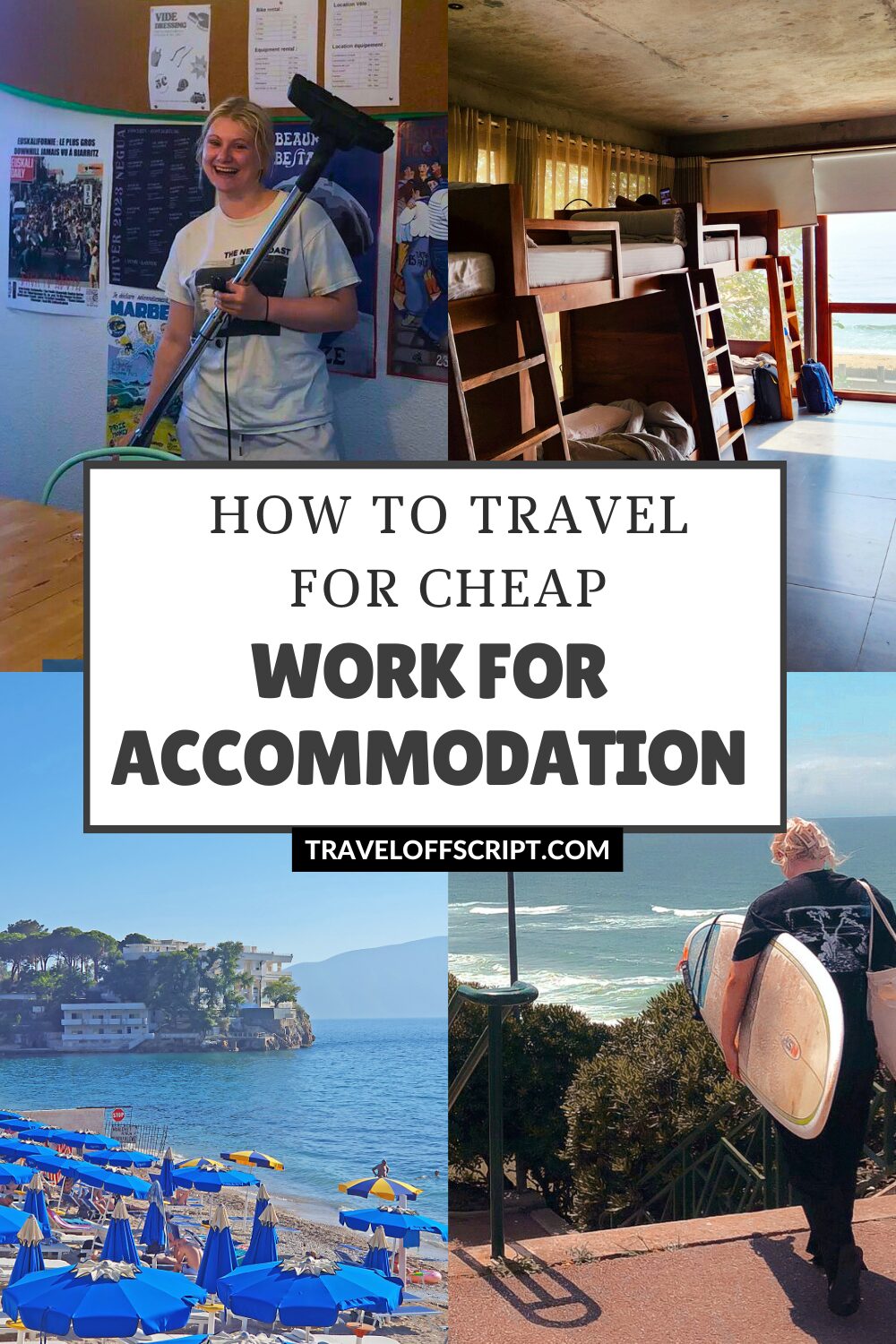

One comment
This is super helpful, I’ve been looking for ways to travel for longer with my limited savings!